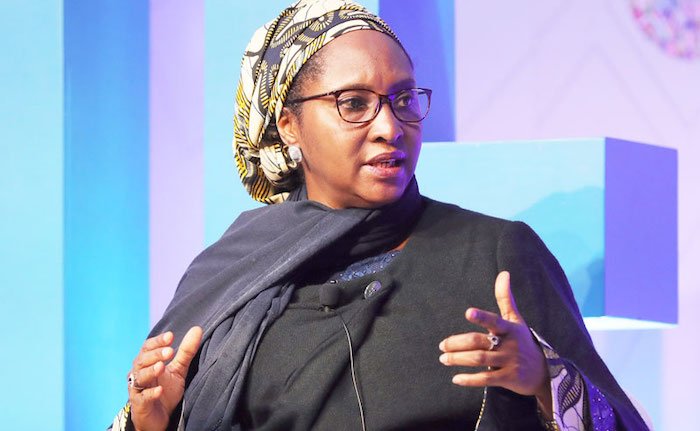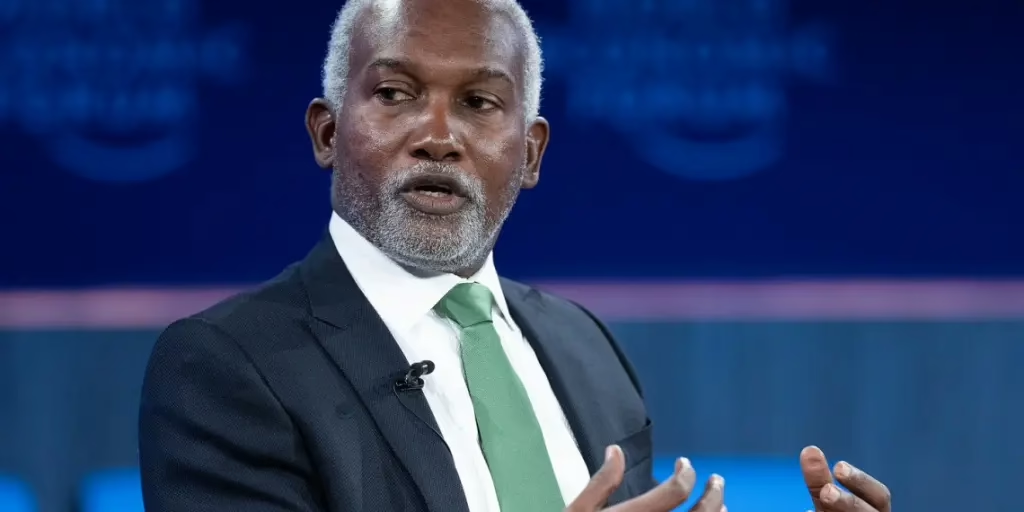one month after Buhari’s exit
The House of Representatives’ Ad Hoc Committee to Investigate the Petroleum Products Subsidy Regime from 2013 to 2022, on Thursday, grilled the Minister of Finance, Budget and National Planning, Zainab Ahmed, over payments of subsidy on Premium Motor Spirit (petrol) by the Federal Government.
In her presentation, Ahmed disclosed that the Federal Government had now proposed a new date to end payments on under-recovery between the landing cost and regulated pump price of PMS, stating that the subsidy regime was not sustainable and might force the government to borrow more in 2023.
According to the finance minister, the government had now planned for payment of subsidy for only half of next year, as contained in the 2023-2025 Medium Term Expenditure Framework and Fiscal Strategy Paper.
Ahmed further disclosed that the President, Major General Muhammadu Buhari (retd.), transmitted the MTEF/FSP to the President of the Senate, Ahmad Lawan, and Speaker of the House of Representatives, Femi Gbajabiamila, as approved by the National Economic Council and the Federal Executive Council, respectively.
She stated, “One thing that stands out in the Medium Term Expenditure Framework was that if the nation holds on to fuel subsidy as it is designed now, we will be incurring from January to December, a subsidy cost of N6.4tn. But we suggested to the Federal Executive Council, and the council approved that, maybe, we could look at the option of exiting the subsidy (regime) half year. So, if we did that, then the cost would be N3.35tn, which is half of the N6.7tn.
“The Federal Executive Council approved the second option. That is the option that was conveyed by His Excellency, the President, to the National Assembly. But Let me also say that even though this is a reduced option, it would mean that we are borrowing more than we would have borrowed if we did not have fuel subsidies. In 2022 we are carrying the cost of subsidy throughout the whole year.
“Recall that the initial MTEF and approval by the parliament was for us to exit the subsidy by June of this year. But during the course of the year, making assessment of the difficult fiscal challenges in the economy and the hardship that our citizens are bearing due to high inflation and other challenges, we were asked to re-submit our plans and review them to include provision for fuel subsidy throughout the year 2022. That was how we came back to parliament with an incremental expense from N443bn which we had planned to up to N4tn subsidy expense in 2022.”
Ahmed further stated, “This situation is not desirable and it is not sustainable. It is putting the country in a very serious, dire financial situation and we do hope that we will be able to exit this subsidy regime in the shortest possible time.
“The N3.35tn in the approved MTEF that is now before the National Assembly for consideration could have been funds that would apply to other vital sectors of the economy such as health, education and social protection. So, we are carrying a burden and we must sit back as citizens and really assess whether it is beneficial for us to continue to do so.”
The minister also gave a breakdown of withdrawals from the Consolidated Revenue Fund and the Excess Crude Account for payments to oil marketers under the subsidy regime.
Ahmed partly said, “Deduction of PMS under recovery shortfall by NNPC for the period 2013 to 2022: We are reporting that there is a total sum of N4.436 trillion which was deducted as PMS under-recovery by NNPC for the period January 2013 to December 2021.
“In this report, we are reporting the sum of N1.774 trillion has been paid to independent oil marketers as subsidies from 2013 to 2016.
“I will like to call the attention of the committee to note that the total sum of N6.210tn – that is the N4.4tn plus the N1.774tn – was expended on PMS under-recovery by NNPC as well as payment of subsidy to independent oil marketers from 2013 to 2021.
“I want to report on the funding of subsidy payments to independent oil marketers for 2013 to 2016. Payments that have been made to them were directly from the domestic Excess Crude Account through the reduction of Sovereign Debts Instruments that we call the SDIs.
“The SDIs are negotiable short-term instruments that were issued by the government at that time to give marketers comfort and enable them access financial support from their bankers for the importation of PMS. The instrument was approved by the then President in 2010.”
She added, “It is also important to note that there were instances where funds were transferred from the Consolidated Revenue Fund to the domestic Excess Crude Account for subsidy payments.
“For 2015, there are two instances: N31bn from the FGN’s excess domestic account, transferred from the CRF. Again in 2015, N156.1bn transferred from the CRF in another instance to the domestic Excess Crude Account.”
Ahmed, however, told the committee to request the statement of account of the NNPC from the company directly.
Several members of the committee, however, expressed their reservations about the payments, especially without determining the actual volume of PMS being circulated and consumed daily.
A lawmaker, Ibrahim Isiaka, asked for the rationale behind NNPC’s deduction of N1.66tn from source, against the N1.15tn paid to oil marketers in 2021, leaving an excess of N500bn.
Consequently, the committee resolved to request documentary evidence of the beneficiaries of the N500bn.
Chairman of the committee also said in part, “On the N6.7tn required for 2022, why I am disturbed is because the 2023 financial year is approaching by September, we will be expecting Mr. President’s budget submission, and the MTEF is already before the National Assembly.











Leave a Reply